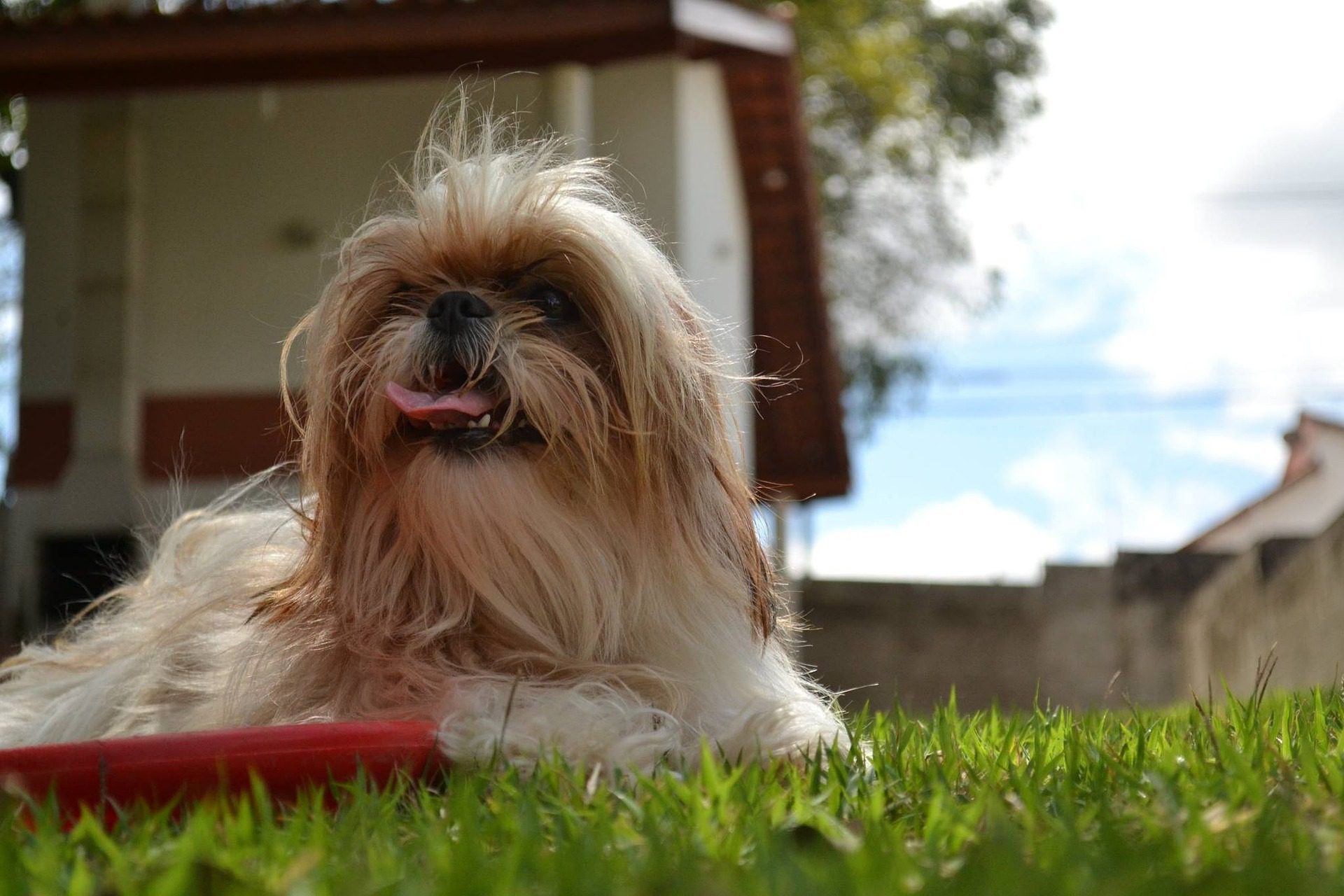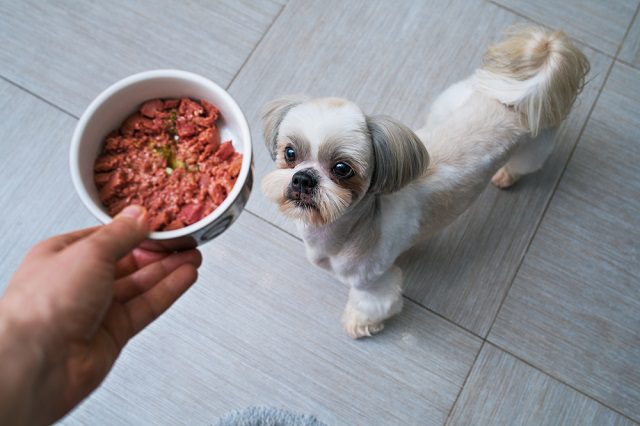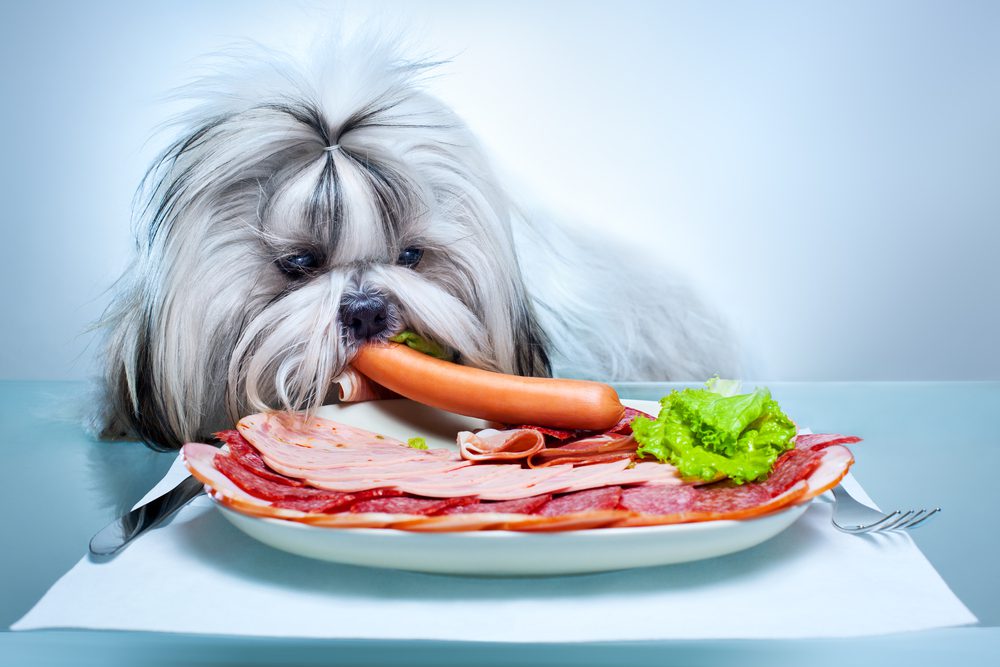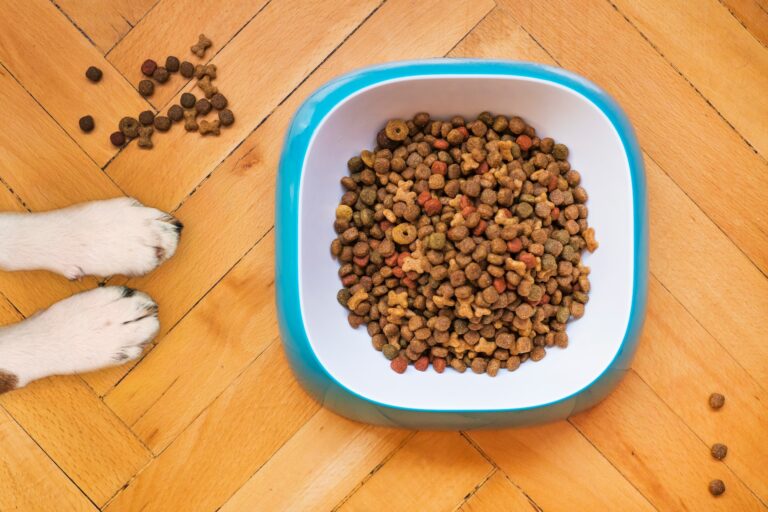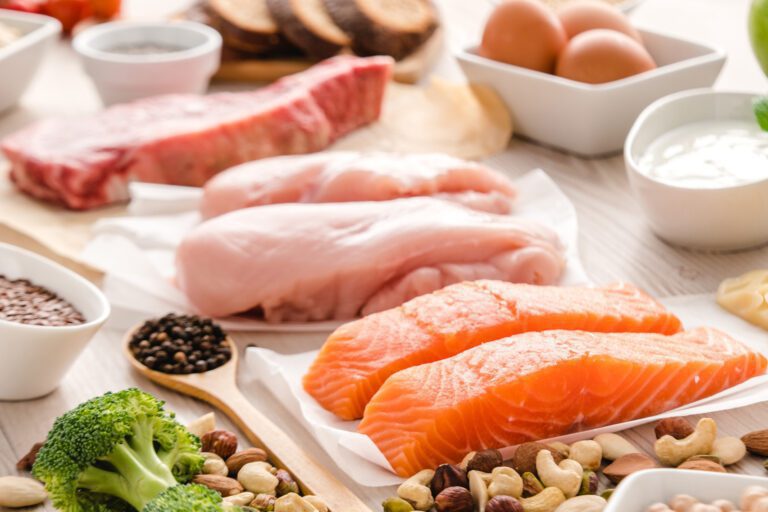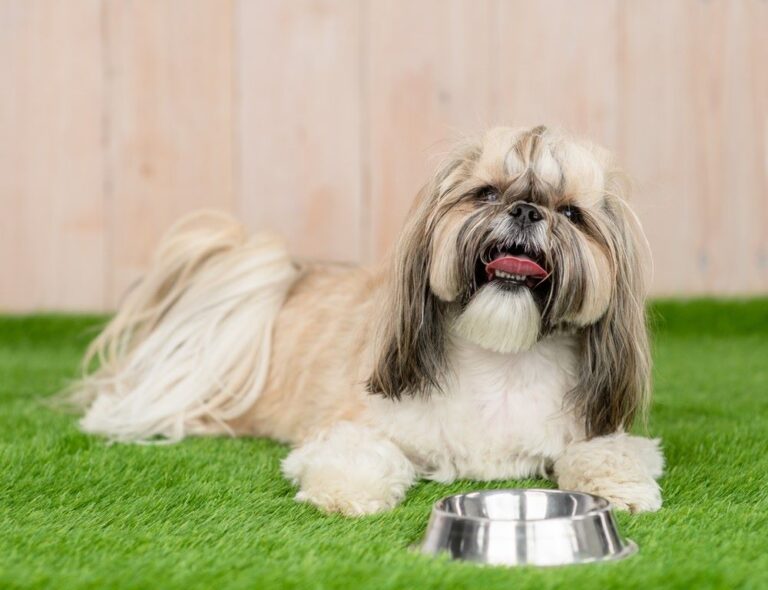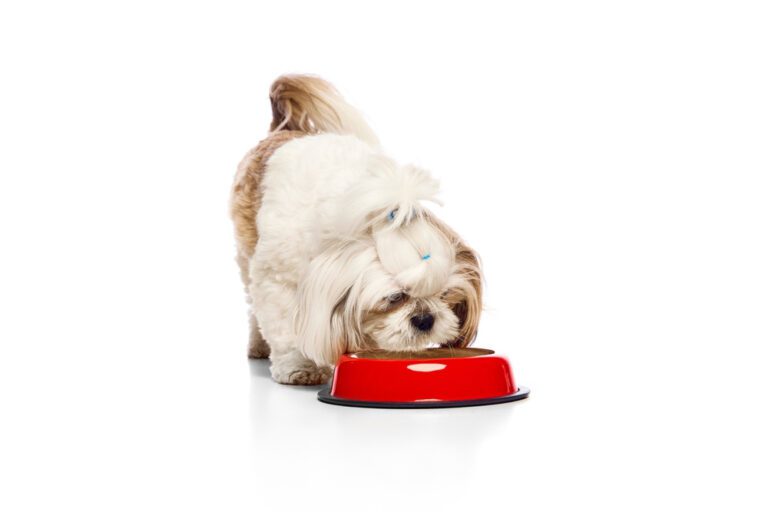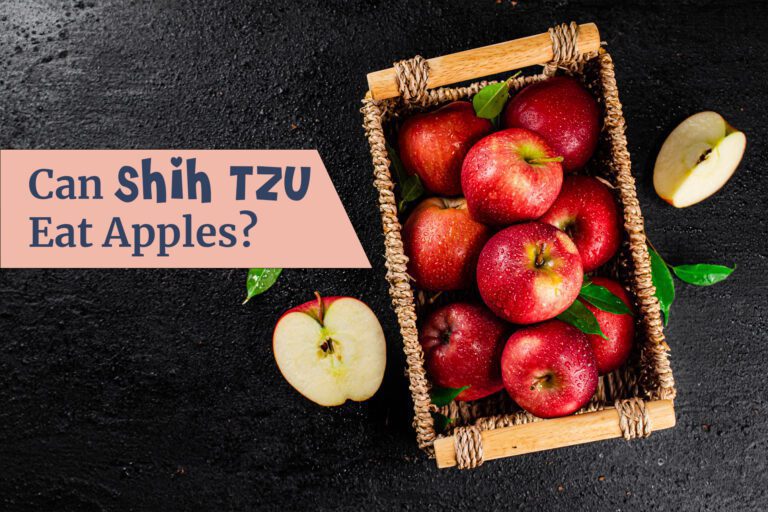8 Common Shih Tzu Eating Problems
As a pet owner, it can be concerning when your Shih Tzu starts experiencing eating problems. Whether it’s a loss of appetite, difficulty swallowing, or food sensitivities, eating problems can affect your dog’s overall health and well-being. It is essential to understand the common causes of eating problems in Shih Tzu dogs and how to address them adequately.
This article will explore some of the most common eating problems in Shih Tzu dogs, including lack of appetite, picky eating habits, pickiness, and gastrointestinal issues.
By understanding the underlying causes of eating problems in Shih Tzu dogs, you’ll be better equipped to help your furry friend get back to eating normally and enjoying their meals.
So, it is essential to be aware of the common Shih Tzu eating problems to properly care for your furry friend.
8 Common Eating Problems in Shih Tzus
Several common problems lead to Shih Tzu eating issues.
1. Lack of Appetite
Shih Tzus is a beloved breed of small dogs, with owners eager to ensure their health and well-being. However, Shih Tzus can suffer from eating problems, one of the most common issues among this breed. A lack of appetite can stem from several causes, such as stress, illness, or certain medications. Taking your Shih Tzu to the vet is necessary to rule out any underlying medical conditions for an accurate diagnosis and treatment.
With the proper professional guidance and loving care at home, Shih Tzus can quickly return to their regular eating habits and enjoy a long, healthy life surrounded by love.
2. Unwillingness to eat dry food
Shih Tzus, like all dogs, can have various eating problems. One of the most common issues Shih Tzu faces is needing help eating dry food. This issue arises when Shih Tzus has been fed wet food for long periods and may become used to it, struggling to switch to dry kibble they don’t enjoy the taste of.
Alternatively, Shih Tzu’s health conditions, such as stomach disease, may make it more difficult to digest and consume certain foods, such as dry kibble. Suppose your Shih Tzu experiences difficulty eating dry food. In that case, seeking professional advice is vital as there are strategies you could employ to help your pup overcome these Shih Tzu eating problems.
3. Finicky eating habits
Another common problem is picky eating habits. Some Shih Tzus may only want certain flavors or textures, while others will only eat if food is served a certain way (i.e., warm rather than cold). In addition, some Shih Tzus may become bored with their food due to being given the same thing every day.
It is important to remember that these types of behavior issues are often just symptoms of underlying medical conditions such as allergies or gastrointestinal distress, so it’s crucial for owners to get their pets checked out by a veterinarian before trying any home remedy.
4. Pickiness
Shih Tzus are infamous for being picky eaters, notably when their diet has recently been altered or they have been given too many treats. If you’re dealing with a Shih Tzu who doesn’t want to eat, it’s best to stick with one type of food until they adjust and get used to it. To ensure the food is fresh and appealing, ensure it has yet to expire or go stale before serving it.
An extra tip is to pour a few drops of warm water or broth over the meal – Shih Tzus appreciate this and will be more likely to devour the dish.
5. Overfeeding
Proper Shih Tzu portion control is essential for keeping your pup healthy and happy. Establishing a consistent feeding routine and measuring their meals based on weight and activity level is a great way to prevent overfeeding. Don’t forget to factor in any snacks or treats you give them throughout the day since too many calories can lead to obesity and other health issues.
These steps should be considered when evaluating how much food your Shih Tzu needs to stay strong and healthy in the long run.
6. Gastrointestinal Issues
Shih Tzu owners should know that their beloved pets sometimes suffer from gastrointestinal issues, such as diarrhea, vomiting, or constipation, because of dietary changes or allergies. These uncomfortable problems can range from mild to severe, so it’s essential to visit the veterinarian immediately for an examination and any necessary treatment.
Based on Shih Tzu’s health issues, the vet may suggest gradually changing their diet and introducing new foods to avoid stomach upset.
7. Dental Issues Impacting Eating
Like us, Shih Tzus can have toothaches or other dental problems that make eating painful. If your Shih Tzu is suddenly avoiding food, it might be a sign that something is wrong with your teeth or gums. We’ll look at how to spot these issues and what to do to keep their mouths healthy.
8. Food Allergies and Sensitivities
Like people, Shih Tzus can be allergic or sensitive to certain foods, making them itch or feel sick after eating. It’s like how some people can’t eat peanuts or dairy. We need to determine if our Shih Tzus have any food allergies or sensitivities to avoid those foods and keep them feeling good.
Keeping your Shih Tzu healthy is critical to avoiding eating problems and other related health concerns.
Diagnosing Eating Problems
When our Shih Tzu buddies start acting differently around their food, it’s like they’re trying to tell us something. Just like when you feel sick and need to see a doctor, Shih Tzus need a vet to check what’s bothering them. Let’s discuss how we can help our furry friends speak up about their eating problems.
The Importance of a Vet Visit
Imagine having a secret decoder to help you understand why your Shih Tzu isn’t eating. Well, a vet is like that decoder. Taking your Shih Tzu to the vet is super important because the vet can look for clues and determine if your dog is just being picky or if something more serious is happening. They can check for signs of illness, dental problems, or allergies that we might not see.
What Happens at the Vet?
Going to the vet might sound scary, but it’s where your Shih Tzu can get help. Here’s what might happen:
- Check-Up: The vet will look at your Shih Tzu, check their weight, and see if there are any signs of health problems.
- Questions for You: The vet will ask you about what your Shih Tzu eats, how often they eat, and if you’ve noticed any changes in their behavior or poop.
- Tests: Sometimes, the vet might need to do some tests, like blood tests or x-rays, to get a closer look at what’s going on inside your Shih Tzu’s body.
Getting the Right Diagnosis
Finding out why your Shih Tzu isn’t eating right is like solving a mystery. The vet will use all the clues from the check-up, your answers, and the tests to figure out the problem. Once the vet knows what’s wrong, they can tell you how to help your Shih Tzu feel better. It might be something simple like changing their food or needing medicine to eliminate an infection.
Solutions and Management Strategies
Once we know what’s causing the eating problems, we can improve things for our Shih Tzus. Here are some ways to help:
Nutritional Adjustments
If the problem is with the food, we might need to try different kinds of food to see what our Shih Tzu likes and what’s good for them. It’s like finding the yummy snack that makes you strong and healthy.
Creating a Happy Mealtime
Mealtime should be a happy time, not a stressful one. Ensuring our Shih Tzus eat in a quiet, comfy spot without distractions can help them enjoy their food more. It’s like having your particular place at the dinner table where you feel relaxed and ready to eat.
Professional Treatments vs. Home Remedies
Sometimes, home remedies can make a big difference, like adding a little chicken broth to their food. But other times, we need professional help from the vet, especially if our Shih Tzus needs medicine or special diets that we can’t provide on our own.
When to Seek More Help
If you’ve tried everything and your Shih Tzu still isn’t eating right, returning to the vet is okay and asking for more help. It’s like asking a teacher for extra help when you’re stuck on a homework problem. The vet is there to help your Shih Tzu, so feel free to ask for advice or more tests if things aren’t getting better.
Preventing Eating Problems
Keeping our Shih Tzus happy and healthy is like caring for a garden. Just as we water plants and protect them from pests to keep them thriving, we can do certain things to prevent eating problems in our furry friends before they start. Let’s learn how to keep our Shih Tzus’ eating habits as joyful as their playful barks.
Regular Veterinary Check-ups
Think of the vet as a super friend for your Shih Tzu’s health. Just like you visit the doctor for check-ups, taking your Shih Tzu for regular vet visits can help catch any health issues early before they become more significant problems. It’s a way to make sure your Shih Tzu stays in tip-top shape and avoids eating issues down the road.
Choosing the Right Diet
Picking the right food for your Shih Tzu is like choosing the best fuel for a race car. You want something that will keep them running smoothly and happily. There are so many types of dog food out there, so it’s essential to find one that’s just right for your Shih Tzu’s age, size, and health needs. Sometimes, the vet can recommend the best food to make your Shih Tzu’s tail wag joyfully at mealtime.
Importance of Mental Stimulation
Did you know that keeping your Shih Tzu’s brain busy can also keep your stomach happy? It’s true! Just like you enjoy puzzles and games, Shih Tzus loves activities that make them think and explore. This can include fun food puzzles that not only entertain them but also slow down their eating. It’s a great way to turn mealtime into a fun time.
Consistent Feeding Routine
Having a regular meal schedule is like knowing exactly when you’ll get to eat your favorite snack every day. It makes you happy just thinking about it. Shih Tzus feel the same way about their meal times. Eating simultaneously every day helps them feel secure and comfortable, and it can prevent eating problems like overeating or not eating enough.
Watching for Early Signs of Trouble
Keeping an eye on your Shih Tzu’s eating habits is like being a detective on a crucial case. If you notice your Shih Tzu suddenly doesn’t like their food, is eating less, or is having trouble chewing, it’s time to act. Catching these signs early can help prevent more significant eating problems and keep your Shih Tzu healthy and happy.
Making Mealtime Positive
Mealtime should feel like a party, not a chore. Ensuring your Shih Tzu feels loved and stress-free during meals can help. This means no loud noises or distractions, just a peaceful time to enjoy their food. Sometimes, a little encouragement and praise can make a big difference when they eat well.
Conclusion
Eating problems can be frustrating for owners of Shih Tzus and other small breeds when trying to keep their pups healthy and happy. Understanding what might be causing your pet’s issues is critical – whether it’s an aversion to certain foods or an underlying medical condition – so you can take steps toward resolving them effectively and safely. With patience and understanding from both you and your pup, soon you’ll have them eating happily!
FAQ’s
How Can I Tell if My Shih Tzu Is Eating Enough?
Figuring out if your Shih Tzu is eating enough is like ensuring you have enough to feel full and energetic. You’ll want to see if your Shih Tzu is active, has a shiny coat, and is not too thin or chubby. You can also check the back of their food package for a feeding guide based on their size and age, but remember, every Shih Tzu is unique. If unsure, a quick chat with your vet can give you peace of mind.
What Are the Signs of Food Allergies in Shih Tzus?
Like people, Shih Tzus can be allergic to certain foods, making them feel pretty yucky. Signs of food allergies can include itchy skin, scratching a lot, ear infections, or even upset stomachs like vomiting or diarrhea. If you notice any of these signs, it’s time to play detective and work with your vet to determine what food might be causing the trouble.
My Shih Tzu Is a Picky Eater. What Can I Do?
Dealing with a picky eater can be like trying to make a friend try a new food they’re sure they won’t like. It takes patience and a bit of creativity. Mix some wet food with dry food, warm up their meals to bring out the smell, or even change to a different flavor or brand. Remember, changes should be slow and steady, and keep an eye out for any signs of tummy trouble.
How Often Should I Feed My Shih Tzu?
Feeding your Shih Tzu is like setting up a meal schedule for yourself. It helps to have a routine. Most adult Shih Tzus do well with two meals a day, while puppies might need three to four smaller meals as they grow. This keeps their energy levels steady throughout the day. But every Shih Tzu is an individual, so if you need more clarification, your vet can offer tailored advice.
Is It OK to Change My Shih Tzu’s Food?
Imagine eating the same meal daily; you’d want to change things up. Your Shih Tzu might feel the same way. Changing your Shih Tzu’s food is okay, but it’s essential to do it gradually. Mix a little of the new food with the old food and slowly increase the amount over a week or two. This helps their stomach get used to the fresh food without causing upset.

